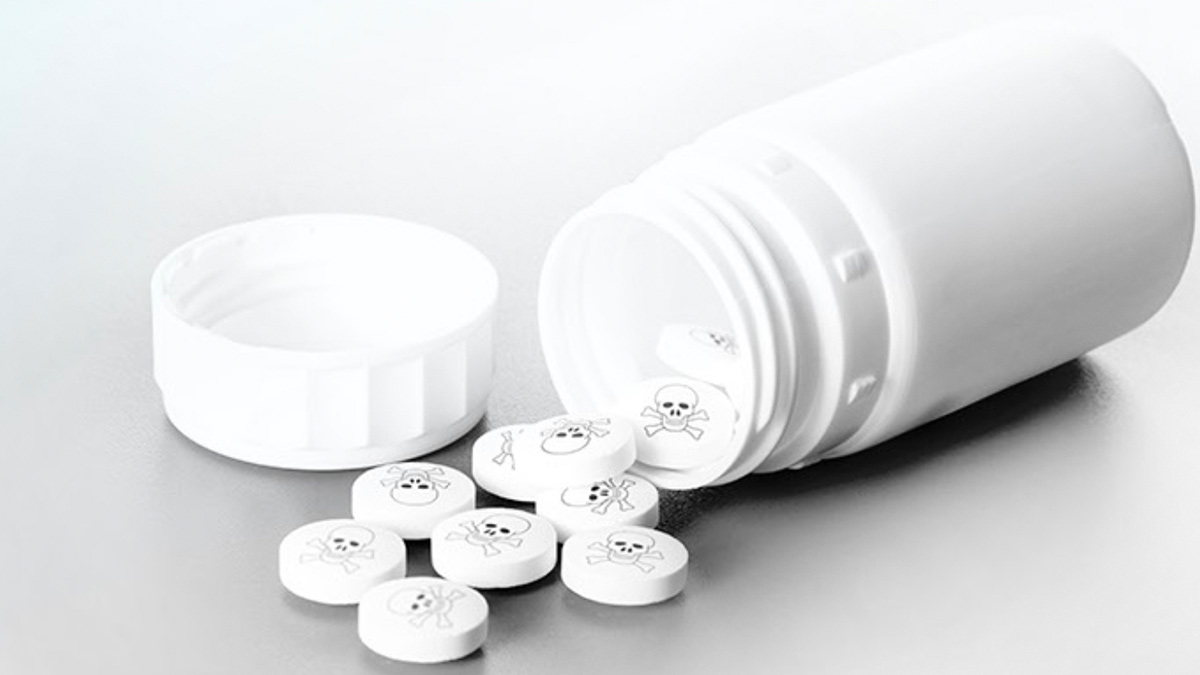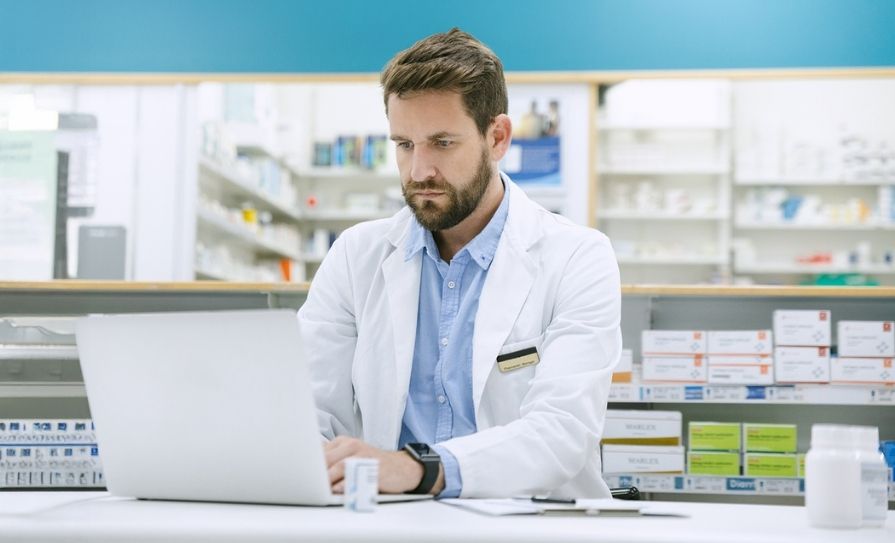The ‘Jihadi pill’ is now a key part of the terrorist’s pharmacopoeia, writes Dr Des Corrigan
The so-called ‘Jihadi pills’ are counterfeit versions of fenethylline or Captagon as it was a licenced medicine. Its abuse is now common in the Middle East, notably among adherents to ISIS, hence the nickname. A recent press release from the Foreign and Commonwealth Office in the UK entitled “Tackling the illicit drug trade fuelling Assad’s war machine” drew attention to the fact that the 80 per cent of the world’s supply of Captagon produced in Syria, was estimated to be worth up to $US57 billion to the Assad regime. Both the UK and the US have imposed sanctions on 11 individuals including businessmen, militia leaders, Hezbollah associates,
and relatives of Assad involved in the production and trade in Captagon.
Fenethylline is a synthetic molecule comprising amphetamine conjugated with theophylline and is a pro-drug of
both. It was first used medically in 1961 for the treatment of ADHD, depression, and narcolepsy. Since amphetamine is a major metabolite it is not surprising that reported side-effects include dependence, acute heart failure, myocardial infarction, and psychosis. After it was scheduled under the UN Convention on Psychotropic Substances in 1986, legal production ceased, but counterfeit products have thrived since then. Those counterfeit versions often do not contain fenethylline, but other amphetamines mixed with other drugs including caffeine, ephedrine, theophylline, procaine, and even chloroquine.
Originally, clandestine synthesis was centred in the Balkans and the Captagon, and subsequently trafficked into the Arabian Peninsula. Nowadays, Syria is the main producer and it not only pays for arms for use in the civil war, but it also increases the endurance of fighters, on both sides apparently, by reducing the effects of lack of sleep and fatigue without diminishing alertness, allowing them to ignore pain from battlefield injuries and from torture. A paper in Basic and Clinical Pharmacology and Toxicology in 2016 noted that annual seizures of Captagon represent a staggering one- third of all amphetamine-type stimulants (ATS) worldwide and that three-quarters of patients treated for drug problems in Saudi Arabia are addicted to ATS in the form of Capatagon. The amounts involved are enormous. Between 2013 and 2015 over 48 million tablets were seized, begging the question as to how many more were successfully trafficked into the Middle East and also North Africa. Seizures were made in Lebanon, Dubai, Turkey, and Saudi Arabia. According to an article in Addiction in 2016 by researchers from what is now the South East Technological University (formerly Waterford Institute of Technology), Captagon was used in Syria to stimulate aggression in fighters and to instil the ability to kill without moral compunction. Both sides seem to have copied the actions of the Allies in World War II in their use of Dexedrine, and of Nazi Germany and Japan whose armed forces used methamphetamine. The idea of ISIS militants armed with AK 47s and/ or swords capable of beheading victims, being dosed up to their eyeballs with a psychotogenic amphetamine is terrifying.
A 2021 report by the Radicalisation Awareness Network on behalf of the European Commission, entitled “Substance Use and Violent Extremism”, claimed that substance use might play a role in triggering pathways to both violent Islamic and violent right-wing extremism by lowering the behavioural and mental thresholds for committing violent acts. An article in Psychopharmacology in 2016 explored the potential role of Captagon and other psychoactive drugs in the
Paris and Tunisian atrocities that took place in 2015. The terrorist who shot and murdered 38 tourists on a beach in Tunisia that summer had taken counterfeit Captagon before going on his murderous rampage. In November that year 130 people were killed in Paris in a series of suicide bombings and shootings, notably at the Bataclan theatre by extremists who claimed adherence to Islamic State in the Levant (ISIL) and who were believed to be under the influence of Captagon.
That Psychopharmacology paper used the term ‘pharmaco-terrorism’ to describe what had happened and
it is a more scientifically precise one than ‘narco-terrorism’, which is usually used. It is a more precise term because it is not just narcotics that are linked to terrorist organisations and acts, although one narcotic for which there is increasing evidence of terrorist involvement is tramadol. A 2018 article in the International Journal of Drug Policy
drew attention to the seizure of 37 million tramadol tablets by the Italian authorities in Genoa believed to be bound for North Africa and the Middle East. The authors suggested that there was growing evidence of tramadol abuse in those areas and that terrorists were using it to reduce pain (not surprisingly), but also to increase endurance and alter perception. There were suggestions that it was used in Gaza and by Boko Haram members in Nigeria.
Boko Haram is one of a number of Jihadi groups that infest the Sahel region of Africa. Others include Islamic State and al-Qaeda in the Islamic Mahgreb. They carry out attacks in many countries of the Sahel, an area that stretches from the Atlantic to the Red Sea and includes Senegal, Chad, Mali, and Niger among others. There are strong links between those terrorist groups and local and trans-national organised crime groups (OCG) due to the routing of cocaine destined for Europe from South America through West Africa and then the Sahel. Weak governments and porous or non-existent borders facilitate the drug-trafficking with Guinea-Bissau in particular seen by many as a ‘narco-state’ due to the corrupt influence of OCGs. Not surprisingly, some of those drugs find their way onto local markets adding to the poverty, crime, and political instability plaguing many of those countries.
A particularly problematic consequence of the OCG/terrorist links is the use of drugged child soldiers in many of
the recent civil wars in West African countries such as Liberia and Sierra Leone as well as in the Democratic Republic of the Congo. What is particularly obscene is warlords using cannabis and other drugs to control these children and force them to commit appalling mutilations and killings. Now cannabis is not usually associated with violence in popular discourse because long-term users tend to be quite passive, but aggression is
a recognised symptom of withdrawal from the drugs. More pertinent is the violence linked to the paranoia and psychosis induced by cannabis drugs in some users. A review of 14 such cases appeared in the International Journal of Environmental Research and Public Health in 2020. Among the case reports were several mass shootings in Florida, Texas, and Washington between 2016 and 2018 by known heavy users of cannabis. In terms of terrorist violence, the Boston Marathon bombers are an example, as is the perpetrator of the 2017 Manchester Arena suicide bombing who was known as a ‘party animal’ who used cannabis heavily and showed evidence of paranoia and aggression.
The links between organised crime, terrorist groups, and the illicit drugs market are pervasive and multifaceted. Some commentators in this country have highlighted the link between individual decisions to buy drugs and gang violence. Such ‘recreational’ users might also consider how their purchases are supporting international terrorism, whether it is called pharmaco- or narco-terrorism.
Dr Des Corrigan, Best Contribution in Pharmacy Award (winner), GSK Medical Media Awards 2014, is a former Director of the School of Pharmacy at TCD and won the Lifetime Achievement Award at the 2009 Pharmacist Awards. He was chair of the Government’s National Advisory Committee on Drugs from 2000 to 2011. He currently chairs the Advisory Subcommittee on Herbal Medicines and is a member of the Advisory Committee on Human Medicines at the IMB. He is a National Expert on Committee 13B (Phytochemistry) at the European Pharmacopoeia in Strasbourg and he is an editorial board member of the Journal of Herbal Medicine and of FACT — Focus on Alternative and Complementary Therapy.







